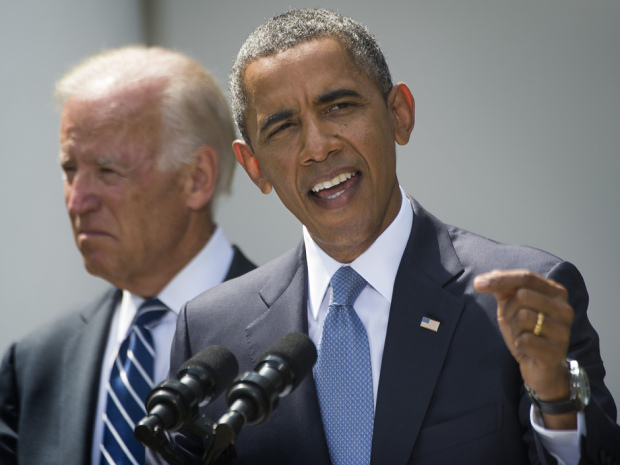On Wednesday, The New York Times published an overview with the frightening headline, “Jihadist Groups Gain in Turmoil Across Middle East“.
The article was superficial but the headline and one of its quotes pointed to a deeper significance: the spectre of “extremism” may be pushing the Obama Administration to accept President Assad remaining in power:
“We need to start talking to the Assad regime again” about counterterrorism and other issues of shared concern, said Ryan C. Crocker, a veteran diplomat who has served in Syria, Iraq and Afghanistan. “It will have to be done very, very quietly. But bad as Assad is, he is not as bad as the jihadis who would take over in his absence.”
Crocker is no longer in Government but his prominence in a piece whipping up fear — “American intelligence and counterterrorism officials [believe] that militants aligned with Al Qaeda could establish a base in Syria capable of threatening Israel and Europe — raises the possibility that he is speaking on behalf of those inside the Administration with similar views.
Yet, on Wednesday, The Wall Street Journal portrayed a different US Government approach:
The U.S. and its allies have held direct talks with key Islamist militias in Syria, Western officials say, aiming to undercut al Qaeda while acknowledging that religious fighters long shunned by Washington have gained on the battlefield.
Without explicitly saying so, the article indicated that American officials had contacted the Islamic Front, the newly-formed bloc of seven leading insurgent factions.
That US outreach was not based on a renewed support of the insurgency’s fight on the battlefield. Instead, “Western officials” said it was “to persuade some Islamists to support a Syria peace conference in Geneva on Jan. 22″.
On the surface, that would appear to be a vain attempt: the groups in the Islamic Front — from Liwa al-Tawhid to Ahrar al-Sham — have said they will not stop their fight until the Assad regime is overthrown.
What is the answer to the conundrum of an Administration which could be willing to bow to Assad retaining power while opening talks with the fighters dedicated to toppling him?
The Obama Administration’s policy now is dedicated to getting a “peace” conference in Geneva in the near-future — even if a “real” conference with the participation of both the regime and the opposition/insurgency is impossible.
And because that circle cannot be squared, the US President and his advisors will either spin in continued uncertainty or they will have to make a choice:
Assad or the opposition?
Place your bets on their ultimate decision.

